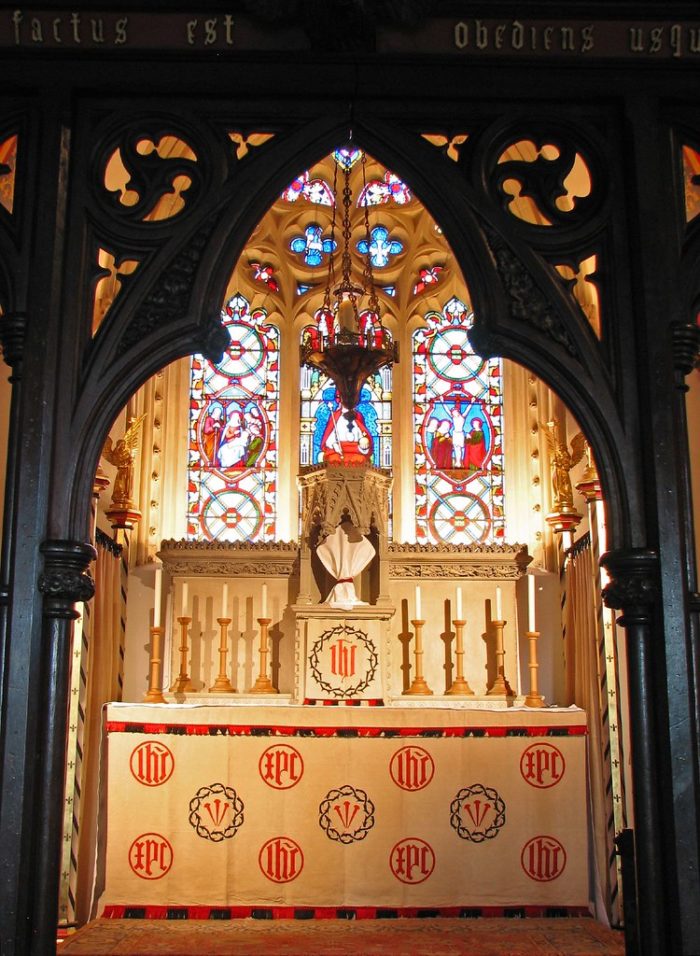From Ash Wednesday to Easter Sunday, Lent is a period of penance and preparation. It is a remembrance of Christ’s passion and death. Every year, Christians fast, abstain, give alms, and repent for their sins. For Catholics, it’s a time that holds a special place in our hearts. I still remember having to give up lemonade or television or whatever else I had to give up for Lent. Of course, my memory would sometimes slip, causing me to break my Lenten promise by accident. To avoid making such a mistake this year, I decided to reflect more deeply this Lenten season. This essay is what I’ve come away with.
So, how did Lent come about? In the early days of Christianity, there was a diversity of ways Christians fasted before Easter. Some believed it ought to be for two days, some several, and some believed in fasting for forty consecutive hours. This diversity is partly explained by the fact that this preliminary fasting was a later development of the faith over time. The Apostles and the Early Christians taught that every Sunday liturgy was a memorial of the Resurrection and that every Friday was a day of fasting in remembrance of Christ’s death. The early Christian’s Lenten celebrations also never lasted more than a week because they practiced such strict fasts that they refused to eat any food or drink any water.
Mentions of forty days of fasting began in the early years of the fourth century. The fifth canon of the Council of Nicaea (A.D. 325) refers to a “tessarakost” (Greek for “fortieth day”). Around this time, Christian saints such as St. Athanasius instructed Christians to fast for the forty days leading up to Holy Week. The number forty plays a prominent role throughout Scripture. In Exodus 32, Moses spent forty days and forty nights praying to God on Mount Sinai. In 1 Kings 19, Elijah walked to Mount Horeb for forty days and forty nights, fasting all the while. And in the Gospels, Jesus fasted in the Judaean Desert for forty days and forty nights, and such practices began in the sixth century. By medieval times, the practice of fasting for forty weekdays and six Sundays beginning with Ash Wednesday had preoccupied the greater part of the Western Church.
Lent is a time of solemn penance and warring with all our hearts against sin. Just as Jesus faced three temptations after fasting in the desert, so too do we face three different kinds of temptation: temptations of the flesh, temptations from the world, and temptations by the Devil. To this, Christians wield three spiritual weapons. Against the temptations of the flesh, we choose to abstain from pleasurable things. By denying our bodies the things it seeks, we build our self-control. Against the world, we partake in almsgiving. We choose to spend our money on the Church and charity rather than on ourselves, thereby separating ourselves from the self-centered, Mammon-worshipping society around us. Finally, against the Devil, we pray to God to forgive our sins and protect us from evil spirits. In doing all of this, remember that these practices are to protect us from evil and are not something to brag about. Jesus warned in Matthew 6 that rubbing your spiritual life in other people’s faces will prevent you from gaining their benefits.
Today, Roman Catholics like myself are expected to observe the law of fasting on Ash Wednesday and Good Friday and the law of abstinence on Ash Wednesday, Good Friday, and all the Fridays of Lent. The law of fasting states that all healthy Catholics between the ages of eighteen and fifty-nine are to eat only one regular meal, two small meals which are each half the size of a regular meal or smaller, and no snacks. The law of abstinence states that all Catholics above the age of fourteen are forbidden to eat the flesh and organs of mammals and birds. It’s nowhere near as strict as going several days without food or water, but it’s still difficult for most people. Unless you’re used to going on diets, most people aren’t inclined to watch what they eat – including me. However, such observances must be taken seriously if one is to prepare for the Easter holiday. Lent is, above all, a time to try to be your best self. And don’t worry – if you slip up, you can ask God for forgiveness and try again.
